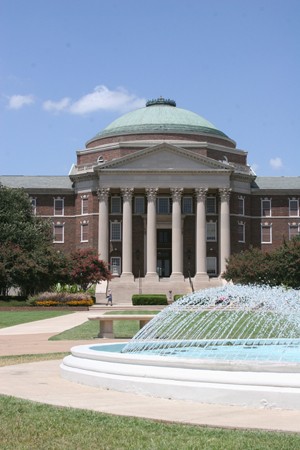
Six SMU students were rushed to the hospital for drug and alcohol-related overdoses one week into the fall term. That number, which was provided by a university student affairs official, is the highest in SMU history and accounts for more than half of the eleven hospitalizations to date.
Paralleling the rise in hospitalizations, the number of student citations in relation to previous years have drastically increased. Since classes began on Aug. 23, drug and alcohol-related citations have been issued by SMU police nearly four times as many as the 68 that were written in the same time period last year.
Citations at Greek houses, which have occurred in the past, are part of this rise. Twenty incidents have resulted in 88 individual citations according to SMU police records. At this point in 2006, only 33 individual citations had been issued at Greek houses.
The highest single incident so far this year involved 14 students being cited for underage drinking on Aug. 30 at the Sigma Alpha Epsilon house.
Sigma Chi has the highest total number of individual citations with 26 from four different incidents. SAE and Phi Gamma Delta (FIJI) each have 21 individual citations. Pi Kappa Alpha has nine individual citations from six different incidents, Kappa Sigma has six individual citations from one incident and Kappa Alpha has five individual citations from two incidents.
Phi Delta Theta, Lambda Chi Alpha and Sigma Phi Epsilon have no citations or incidents that originated from their houses.
Attempts to get a comment from the SMU Police Department on the steep rise in alcohol violations were not successful.
SMU sophomore Brett Green feels strongly that the “increase in violations will not solve the underlying problem of substance abuse on campus.”
He believes students taking possession of the issue will be more effective than police trying to issue citations to everyone on campus.
The growth in numbers comes just as the university has begun its campaign against substance abuse on campus. SMU has made many additions to the school’s prevention programs.
Aside from the required education and awareness programs such as AlcoholEdu and healthy living seminars that incoming students are required to participate in, the university has enlisted the help of a Task Force on Substance Abuse Prevention. The task force will investigate the current SMU policies and practices and will make a recommendation for change to President R. Gerald Turner by December.
Kathrine Tullos, Student Body President and representative on the task force, explained in an e-mail interview that she believes the changes from the task force will be positive.
“The task force is taking a comprehensive approach, which I believe will be the best way to address these issues,” she said.
A full-time health educator has also been hired, joining two full-time licensed counselors on staff. They will work with students and organizations to focus campus attention on alcohol and drug abuse. Additionally, SMU will be participating in the National Collegiate Alcohol Awareness week in October.
These program enhancements come “out of deep concern for the recent tragic deaths of three students in the past year,” President Turner stated in a release at the time of the task force’s formation. All three students, junior Jacob Stiles, freshman Jordan Crist and senior Meaghan Bosch, died of drug or alcohol overdoses between December and May of last year.
Despite that only one of the three aforementioned deaths, Stiles, was a Greek affiliated student, the task force turned to members of the Greek community to begin its investigation. Minutes from the meeting revealed that in an open discussion regarding the state of affairs on campus, the students discussed their chapters’ policies regarding substance abuse.
Discussions also indicated that though awareness on campus has risen greatly since last year’s deaths, students generally do not pay attention to the university’s attempts at alcohol education. The group concluded that the Greek organizations will be major players in the Task Force’s recommendations.
Todd Marchesani, former president of the Interfraternity Council at SMU, attributes the problem to students’ lack of accountability. The administration is calling upon students to work on this very problem and create a more positive change on campus.
“Some students do not have accountability for themselves,” Marchesani said. “Meaning they do not respect themselves and their family enough to control the pressures of substance abuse.”








